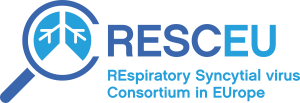Summary
Respiratory syncytial virus (RSV) is not well known outside medical circles, yet most people have probably suffered from it in childhood, as it is the most common cause of severe respiratory illness in infants and children worldwide. The elderly and people with weakened immune systems are also vulnerable to RSV infection. While most people’s symptoms are mild, it can result in pneumonia and 3.4 million cases annually require hospitalisation. There is no specific treatment or vaccine for RSV. The goal of the RESCEU project is to gather information on the scale of RSV infection in Europe and its economic impacts. It will then use this information to design best practice guidelines to improve the way RSV cases are monitored in Europe, and to shape future vaccination programmes. The team will also gather and analyse patient samples to identify biological markers associated with severe RSV infection. This information could aid in diagnosis and facilitate the development of new treatments and vaccines.
Achievements & News
October 2023
Online tool allows scientists to monitor the numbers of people looking up respiratory syncytial virus (RSV) online – a useful...
June 2022
Respiratory syncytial virus – also known as RSV – may not be a widely known disease, yet its impact is...
December 2021
The new project focuses on respiratory syncytial virus (RSV), an infectious disease that can cause severe illness in young children...
The RESCEU project has put together the most comprehensive cache of evidence to date on the true burden of respiratory syncytial virus (RSV), a disease that still claims millions of mostly infant victims every year. ###In an interview with the IMI Programme Office, project coordinator Harish Nair of the University of Edinburgh talks about the project’s recent supplement published in the Journal of Infectious Diseases, which he says represents an important source of evidence for policy makers.
‘The publications from RESCEU are certainly the most comprehensive evidence that has been put together in recent times that present the burden of disease of RSV,’ he says. The data gathered includes the first local estimates of RSV-associated acute respiratory infections in older adults; the first global estimates of the economic burden of RSV in children under five; estimates of the RSV-related hospitalisation burden in children under five in seven European countries, and the first estimates of the risk period for death in children under five after RSV illness.
‘This is the beginning of the process to generate evidence to influence policy specifically for the EU,’ explains Professor Nair. The team has been working with the European Centre for Disease Prevention and Control and (ECDC) national public health agencies to develop guidance on RSV surveillance at country level, which would be required prior to the introduction of RSV immunisation.
Find out more
- Read the article in full
Participants
Show participants on mapEFPIA companies
- Astrazeneca AB, Södertälje, Sweden
- Glaxosmithkline Biologicals SA, Rixensart, Belgium
- Janssen Pharmaceutica Nv, Beerse, Belgium
- Novavax Inc, Gaithersburg, United States
- Pfizer Limited, Sandwich, Kent , United Kingdom
- Sanofi Pasteur SA, Lyon, France
Universities, research organisations, public bodies, non-profit groups
- Academisch Ziekenhuis Groningen, Groningen, Netherlands
- Fondazione PENTA - for the treatment and care of children with HIV-ONLUS, Padova, Italy
- Imperial College Of Science Technology And Medicine, London, United Kingdom
- Rijksinstituut Voor Volksgezondheid En Milieu, Bilthoven, Netherlands
- Servizo Galego De Saude, Santiago de Compostela, Spain
- Statens Serum Institut, Copenhagen S, Denmark
- The University Of Edinburgh, Edinburgh, United Kingdom
- Universitair Medisch Centrum Utrecht, Utrecht, Netherlands
- Universiteit Antwerpen, Antwerp, Belgium
- University of Oxford, Oxford, United Kingdom
- Varsinais-Suomen Sairaanhoitopiirin Kuntayhtyma, Turku, Finland
Small and medium-sized enterprises (SMEs) and mid-sized companies (<€500 m turnover)
- Teamit Research SL, Barcelona, Spain
| Participants | |
|---|---|
| Name | EU funding in € |
| Academisch Ziekenhuis Groningen | 307 125 |
| Fondazione PENTA - for the treatment and care of children with HIV-ONLUS | 223 306 |
| Imperial College Of Science Technology And Medicine | 860 503 |
| Rijksinstituut Voor Volksgezondheid En Milieu | 598 125 |
| Servizo Galego De Saude | 499 453 |
| Statens Serum Institut | 508 717 |
| Synapse Research Management Partners SL (left the project) | 613 270 |
| Teamit Research SL | 480 480 |
| The University Of Edinburgh | 3 604 783 |
| Universitair Medisch Centrum Utrecht | 2 815 388 |
| Universiteit Antwerpen | 1 203 875 |
| University of Oxford | 2 187 350 |
| Varsinais-Suomen Sairaanhoitopiirin Kuntayhtyma | 595 750 |
| Total Cost | 14 498 125 |
